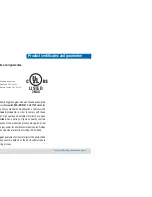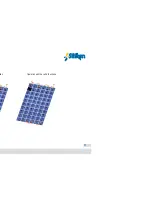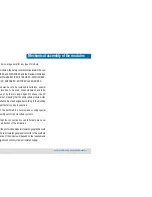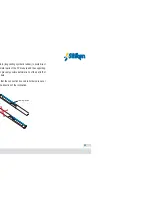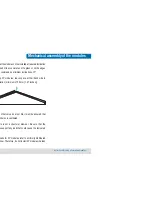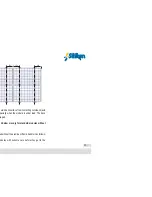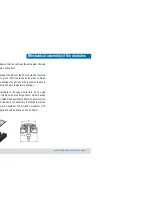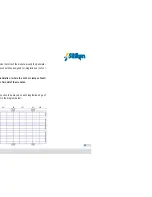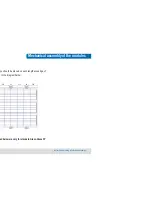
The graphs of the technical data sheets show the behaviour of the
photovoltaic modules. Two types of Current-Voltage curves (I-V) are
shown:
- At different radiations and constant temperature (77 ºF / 25°C).
- At different temperature and constant radiation (92.94 W/ft
2
/ 1000 W/m
2
).
The standard test conditions or STC used for module labelling are:
Radiation = 92.94 W/ft
2
/ 1000 W/m
2
Cell temperature = 77 ºF / 25 ºC
Air Mass = 1.5
It must be noted that the voltage and current behaviour of the cells
depends on the solar radiation and temperature. Therefore, the actual
operating conditions of a photovoltaic module will depend on the region
where the module is installed and the ambient conditions in that region.
The voltage dependence in relation to radiation is defined by a logarithmic
function: at low radiation levels a high voltage is obtained. However,
the current dependence in relation to radiation is defined by a linear
function: it increases in direct proportion to the increase in solar radiation.
Current-voltage curves
20
Instructions for using photovoltaic modules
Summary of Contents for Photovoltaic
Page 1: ...use...
Page 12: ...11 tion Operation with the cell in the shade...
Page 43: ...Notes Instructions for using photovoltaic modules...
Page 44: ......



